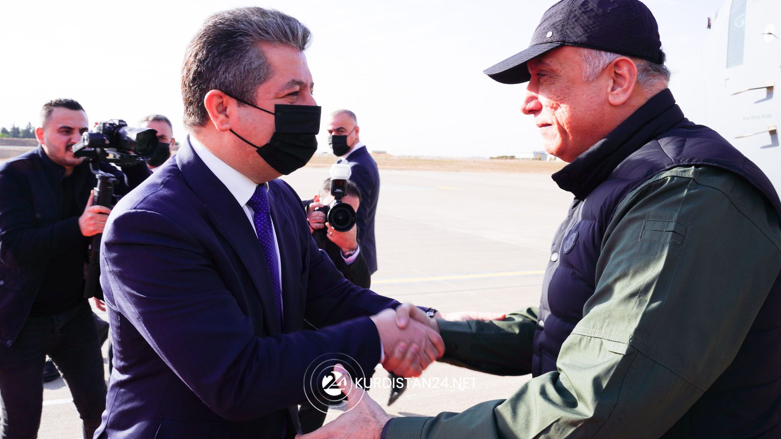UNAMI tasked with supporting KRG-Baghdad cooperation

ERBIL (Kurdistan 24) – The United Nations Security Council on Thursday extended the mandate of the UN Assistance Mission for Iraq (UNAMI) for another year, until May 31, 2023, and also tasked it with supporting cooperation between the Government of Iraq in Baghdad and the Kurdistan Regional Government (KRG) in Erbil.
The UN Security Council Resolution 2631 (2022) was adopted by the Security Council at its 9043rd meeting.
The resolution says the UN Special Representative Jeanine Hennis-Plasschaert and UNAMI are also tasked with "actively supporting the Government of Iraq and the Kurdistan Regional Government to work together and engage in regular and structured dialogue to resolve outstanding issues, including security provisions, budgetary arrangements and the management of Iraq's oil and gas resources, and to implement existing agreements, including the 2020 Sinjar Agreement."
In October 2020, Erbil and Baghdad signed the Sinjar agreement to normalize the situation in the Yezidi-majority town. So far, the deal has not been implemented.
Read More: KRG and Baghdad reach administrative, security agreement on Sinjar
Niyaz Barzani, Head of Foreign Affairs and Diplomacy for the Presidency, told Kurdistan 24 that UNAMI’s new assignment is the result of the lobbying efforts by the office of Kurdistan Region President Nechirvan Barzani.
"In the beginning of May, President Nechirvan Barzani addressed a letter to the presidency of the UN Security Council requesting that our demands be considered in the debates on UNAMI’s mandate renewal," he said.
"Our main demand was for the UN to play a greater role in helping Erbil and Baghdad to resolve their outstanding issues, according to the Iraqi constitution, which is now included in the new mandate."
Moreover, he also mentioned that the mandate includes providing electoral assistance for the Independent High Electoral Committee (IHEC) and other Iraqi institutions, which covers elections in the Kurdistan Region.
There have been several disputes between Baghdad and Erbil over oil and gas.
On Feb. 15, the Iraqi Federal Supreme Court ruled that the oil and gas law of the Kurdistan Region was unconstitutional, a claim that Erbil has repeatedly rejected by citing the constitution.
Prime Minister Masrour Barzani told a panel in Davos on Tuesday that "the four authorities in the KRG, the presidency, the government, the judiciary, and the parliament have rejected the ruling because we think this is a political ruling and not a constitutional ruling made by a so-called legal institution."
Apart from supporting Erbil-Baghdad cooperation, the newly-adopted resolution also recognized "the importance of the effective and timely implementation of the Yazidi Female Survivors Law."
Earlier non-governmental organizations (NGOs) called on the international community to appeal for the implementation of Iraq's Yezidi Survivors Law.
Read More: NGOs call for urgent implementation of Yezidi Survivors Law
The resolution also underlined the "need to hold perpetrators of conflict-related sexual and gender-based violence accountable, to provide mental health and psychosocial support to victims, and to provide reparations and redress measures for all survivors identified in the law, and calling upon the Government of Iraq to extend its provisions to all victims."
On Aug. 3, 2014, ISIS launched a genocide against the Yezidi community in Sinjar, displacing thousands to the Kurdistan Region.
The resolution also noted the Government of Iraq's "desire to see internally displaced persons and displaced Iraqis in Syria (in al-Hol) return to their areas of origin or resettle elsewhere in Iraq, stressing the importance of achieving dignified, safe and durable solutions undertaken on a voluntary and informed basis."
Last month, Iraqi National Security Adviser Qasim al-Araji said the al-Hol camp that hosts thousands of ISIS families (including from Iraq) in eastern Syria near the Iraqi is a threat to Iraq's security.
Read More: Al-Hol camp is a threat to Iraq's security: Iraqi National Security Adviser
He explained that the al-Hol camp holds 30,000 Iraqis, 20,000 of whom are under the age of 18.
